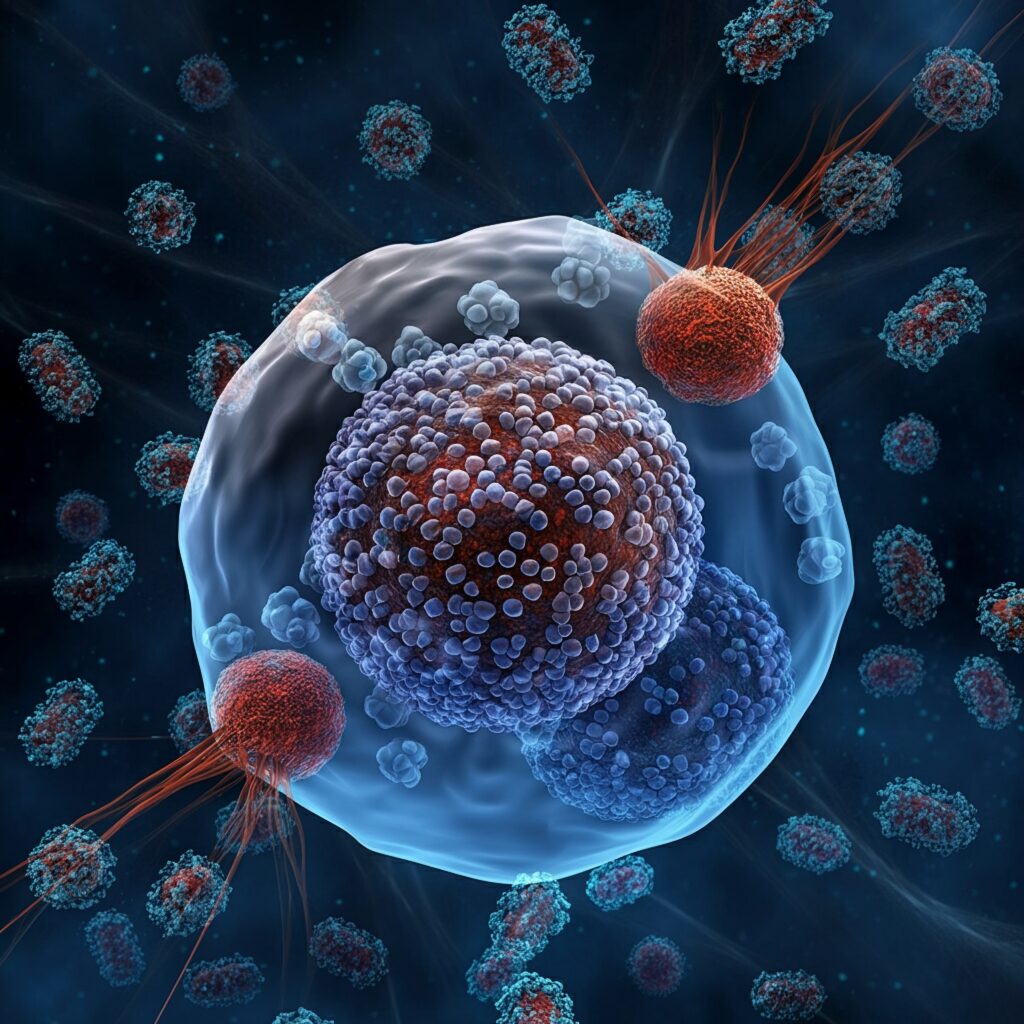Powerful CAR T Cell Therapy Against Aspergillosis
Introduction
This innovative CAR T cell therapy targets antigens associated with Aspergillus, a fungal pathogen known for causing severe infections, especially in immunocompromised patients. By engineering CAR T cells to recognize and attack Aspergillus-associated antigens, this therapy presents a powerful, targeted approach to combating a fungal threat that often proves resistant to conventional treatments. For companies in immunotherapy, infectious disease, and pharmaceuticals, this CAR T cell therapy offers a groundbreaking tool for expanding therapeutic options in fungal infection care, particularly for vulnerable populations in hospitals and clinical settings.
The Challenge: Treating Aspergillus Infections in At-Risk Patients
Aspergillus infections can lead to serious health complications and are a significant risk to patients with weakened immune systems, such as those undergoing chemotherapy, organ transplants, or chronic immunosuppressive therapies. These infections often resist traditional antifungal treatments, leaving patients with limited options and substantial health risks. Healthcare providers urgently need effective, targeted therapies that address Aspergillus infections without compromising the patient’s already weakened immune system.
Targeted CAR T Cell Therapy for Precise Infection Control
This CAR T cell therapy technology provides a precise solution by using CAR T cells engineered to identify and attack Aspergillus-associated antigens. This targeted approach allows for a powerful immune response against Aspergillus infections, delivering greater efficacy while preserving the integrity of the patient’s overall immune system. Patients benefit from a robust, immune-mediated defense specifically aimed at fungal cells, reducing the chances of infection progression and enabling faster recovery. With its precision and immune compatibility, this CAR T therapy represents a safer, more efficient alternative to traditional antifungal treatments.
Key Benefits for Pharmaceuticals and Infectious Disease Treatment
For pharmaceutical companies, this CAR T therapy technology represents a pivotal advancement in the treatment of fungal infections, opening the door to safer and more effective options for immunocompromised patients. Healthcare facilities and immunotherapy providers can leverage this technology to enhance infection management, offering a critical line of defense for at-risk patients. Its precision-targeted action aligns with the trend toward patient-specific treatments, supporting both individualized care and improved outcomes for vulnerable populations.
Invest in Advanced Fungal Infection Control
Licensing this CAR T cell therapy for Aspergillosis positions your company at the forefront of innovative immunotherapy solutions. By delivering a targeted, powerful response to deadly fungal infections, your business can offer hope to immunocompromised patients and lead the way in advanced infectious disease treatment. This technology is a valuable investment for companies focused on improving patient safety, expanding immunotherapy applications, and supporting groundbreaking treatments in infectious disease care.

- Abstract
- Claims
Share
Title
Car t cells that target aspergillus-associated antigens
Inventor(s)
Blake Tolu Aftab
Assignee(s)
Atara Biotherapeutics Inc
Patent #
20230010255
Patent Date
January 12, 2023
